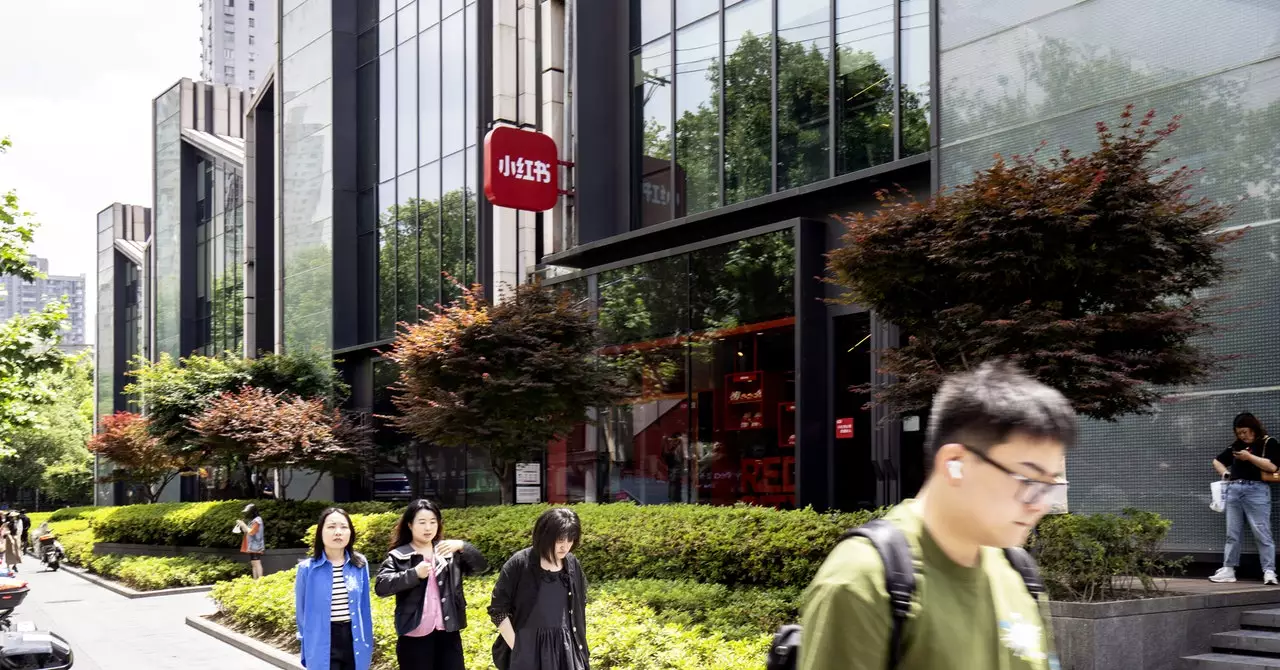In a surprising twist within the realm of social media dynamics, Xiaohongshu, known internationally as RedNote, is facing an urgent need to reevaluate its content moderation strategy. This necessity has surfaced due to an influx of American users fleeing from the ongoing uncertain status of TikTok in the United States. The platform is now in the sights of many seeking an alternative space for their social interactions, with reports indicating a staggering 700,000 new American users joining in just two days. This sudden surge has sparked concerns regarding the management of English-language content alongside the platform’s primary focus on Chinese dialogue.
In response to this unprecedented wave of new users, Xiaohongshu has turned to its recruitment networks to hire content moderators who can handle the demands of English language content. Various job postings have emerged through Chinese recruitment platforms, indicating the platform’s desperate need for professionals skilled in moderation, particularly those fluent in both English and Chinese. Companies such as VXI Global Solutions and Jinhui Rongzhi Technology have activated hiring campaigns, advertising for positions that seek to quickly fill this gap in moderation. These roles are particularly critical as they respond not only to a large volume of postings but also to the unique content standards that Xiaohongshu must enforce to comply with Chinese law.
However, the administration governing the cyberspace in China—the Cyberspace Administration of China (CAC)—has also weighed in on this matter. With the influx of international users, concerns have arisen about the nature of the content shared across borders. Reports suggest that the CAC has issued directives to ensure that posts by foreign users remain invisible to domestic users. This reflects the larger narrative of online oversight exercised by the Chinese government, emphasizing the complex relationship between platforms like Xiaohongshu and regulatory demands. The CAC’s apprehension underscores the fragility of such platforms when faced with international participation, particularly within a politically sensitive environment.
The challenge Xiaohongshu faces is not merely resourcing; it is also about the nuanced nature of content moderation required. Platforms in China grapple with the expectations set forth by the Communist Party, which entails extensive censorship of discussions that stray into sensitive territories. The reality that keywords and topics associated with dissent or controversy can be swiftly purged complicates Xiaohongshu’s moderation task further. Keeping up with the new wave of TikTok users, who may bring different expectations regarding free expression and content sharing, could stretch the platform’s moderation capacities to breaking point.
For users migrating from TikTok, the transition to Xiaohongshu may reveal stark contrasts in platform features and community guidelines. Unlike TikTok, which has built its growing popularity on creative freedom and user engagement, Xiaohongshu operates under tighter restrictions that could alienate newcomers unaccustomed to such a regulated environment. As moderators adapt to unfamiliar user-generated content alongside pre-existing Chinese user bases, they must balance welcoming engagement with regulatory compliance.
Ultimately, the sustainability of Xiaohongshu’s expansion amidst this influx will significantly depend on its ability to streamline content moderation processes while nurturing a user-friendly atmosphere. As American TikTok users embed themselves in this new digital landscape, Xiaohongshu is at a crossroads, challenging its operational norms amid external pressures. Whether it can forge a successful path forward in this evolving scenario hinges on its commitment to effective moderation practices and adherence to regulatory standards—in a way that respects both local laws and international user expectations.

